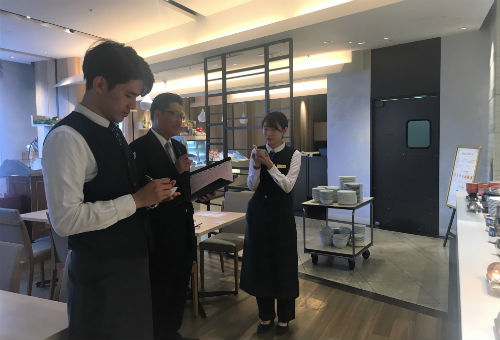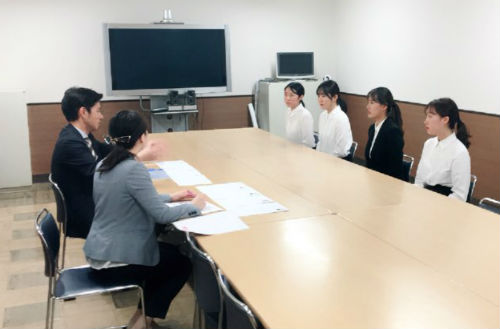
It has been about ten months since I made up my mind to apply for a one-year global internship program supported by the CORE Initiative. In the four-month preparation period in Korea, I wrote a bunch of papers and got my student visa issued. Above all, I focused most on studying conversational Japanese since I thought the most important thing when working as an intern is being able to communicate with the natives. Nevertheless, the actual difference between my imagination and reality was quite big.
Internship Preparation in Japan
When I just arrived in Japan, I was very busy asking for help. There were plenty of things I had to take care of. I went to a district office to register my address and to take out health insurance. Furthermore, the rest of the first week passed by making a phone number, a bank account, and so on. Before the actual internship program started, I had two more months to practice my Japanese. After school, with a Japanese teacher, I rehearsed interviews by answering the expected questions. Practicing every day made me understand Japanese better and helped me not to be afraid when speaking in Japanese.
After passing an actual interview with the general manager, I got arranged to work in a buffet style restaurant called ‘NeN’ in Hotel Hanshin Osaka. On the first day of work, I wrote a part-time contract, looked around the hotel facilities, and received uniforms. There were a few facilities that employees could use. For employee welfare, a company cafeteria, which provides three kinds of menu every day, is just 120 yen (1,200 won). There also are employee lounges where employees can relax freely on before work or during their rest time.

Understanding Japanese Hospitality
The restaurant I work for has three parts - morning, lunch, and dinner. Before opening, the manager has a meeting with all employees including part-timers and chefs about how many customers have reserved and what are their plans if they have requested additional services. When I serve customers, I briefly talk about the foods and system of our restaurant since it has a form of buffet.
I was trained to pay close attention to our customers with a mind called ‘omotenashi’ in Japanese. Omontenashi is a basic courtesy in the service business in Japan, meaning hospitality to sincerely wine and dine customers. I have learned the way to treat customers with a smile in any kind of situation. When working, many unexpected situations happen and handling the situations without hurting the customers’ feelings is the most important thing. While seeing employees dealing with the customers, I learned many genial ways to deal with inconceivable situations.
Above all, the most important and hard part in the internship program is of course communication with the natives. When I first heard them talk, I had no idea due to their Osaka dialect. Their accent and words were different from what I learned at CNU because it was not standard Japanese. Although it is hard to understand their language at first, it is your responsibility to make it understandable. Try talking with natives of various ages and genders. The more you try to talk to them and hear them, the faster your Japanese ability will grow. It is actually hard to talk to various natives in Korea. So go for the internship program abroad during your university life!
By Lee Eun-ji, Overseas Correspondent

